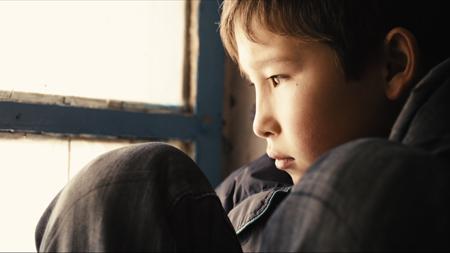"There were no set rules as to how things should be done. There was, on the other hand, an abundance of freedom," says director Pernille Fischer Christensen.
Fischer Christensen's directed her first film, the experimental short "Poesie Album", at the Film Workshop in 1994. Twelve years later, she won a Silver Bear for her feature debut "A Soap" and has taken home several international awards for her third feature film, "A Family".
Privileged access to filmmaking
Pernille Fischer Christensen is one of many, now established filmmakers who put their creativity to the test at the Film Workshop. Her younger colleague Fenar Ahmad finished his third short last year, "Megaheavy", under the Workshop brand, and had it selected for Berlin's Generation programme. "To me, the Film Workshop meant a privileged access to professional filmmaking in no time," says Ahmad.
Morten Hartz Kaplers won the Tiger Award in Rotterdam for his controversial Workshop film, the mockumentary "AFR". "I felt I was given carte blanche to make what I wanted," says Kaplers. "That was important for my drive towards making film."
Christina Rosendahl directed the music film "Stargazer" at the Film Workshop and was struck by the state-of-the-art equipment. "You couldn't find better in town," as she puts it.
The Film Workshop's "hall of fame" counts Ole Christian Madsen and Thomas Vinterberg who both had a try at directing at the Film Workshop before they enrolled in the National Film School. Lone Scherfig made her directorial debut there, and Jørgen Leth, Danish documentary's grand auteur, was part of the defining years in the early 70s, making his "Chinese Ping Pong" at the Film Workshop in 1972.
Set creativity free – then and now
The Film Workshop is a unique institution in Danish cinema and was born out of a vision to uphold a genuine freedom in the practice of film art, seen as indispensable to a democratic society. Opening it's doors in 1970, the Film Workshop invited film and TV workers to produce films outside the main current, and today, 40 years later, its purpose is largely the same as it was at the very beginning: to promote experimental film art and talent.
"The Film Workshop's main role is to prepare potential film talents for the tough competition in the 'real' film industry," says Prami Larsen, head for the DFI Film Workshop. "We organise a development and production process that is exactly the same as the one, say, Susanne Bier or Anders Østergaard go through. After 2-3 films at the Film Workshop, the young filmmakers will have developed a film language and gained good experience."
One of the biggest challenges today, according to Prami Larsen, is to make the young film talents seek and exploit the rich opportunities that come with a global world – new stories, new platforms, new media. But this also gives cause for caution, says Prami Larsen:
"All this diversity can be very confusing for a young director. It may threaten to weaken the film, because it's harder to stick to your own vision, when the world is full of new technical and artistic possibilities, and when cinema, television, internet and all the other interactive medias are in play simultaneously."
From the archives
The Film Workshop's 40-year history is coloured by wild experimentation and new technologies, and has given way to more than 1200 films in all genres, made by about 800 directors. Political statements, poetic reflections, experimental investigations, personal essays – it's all there.
The Film Workshop team has taken a trip through the archives and put together three anniversary films:
Did you get to see them dance?
Did you get to see them eat?
Did you get to see them perform?
